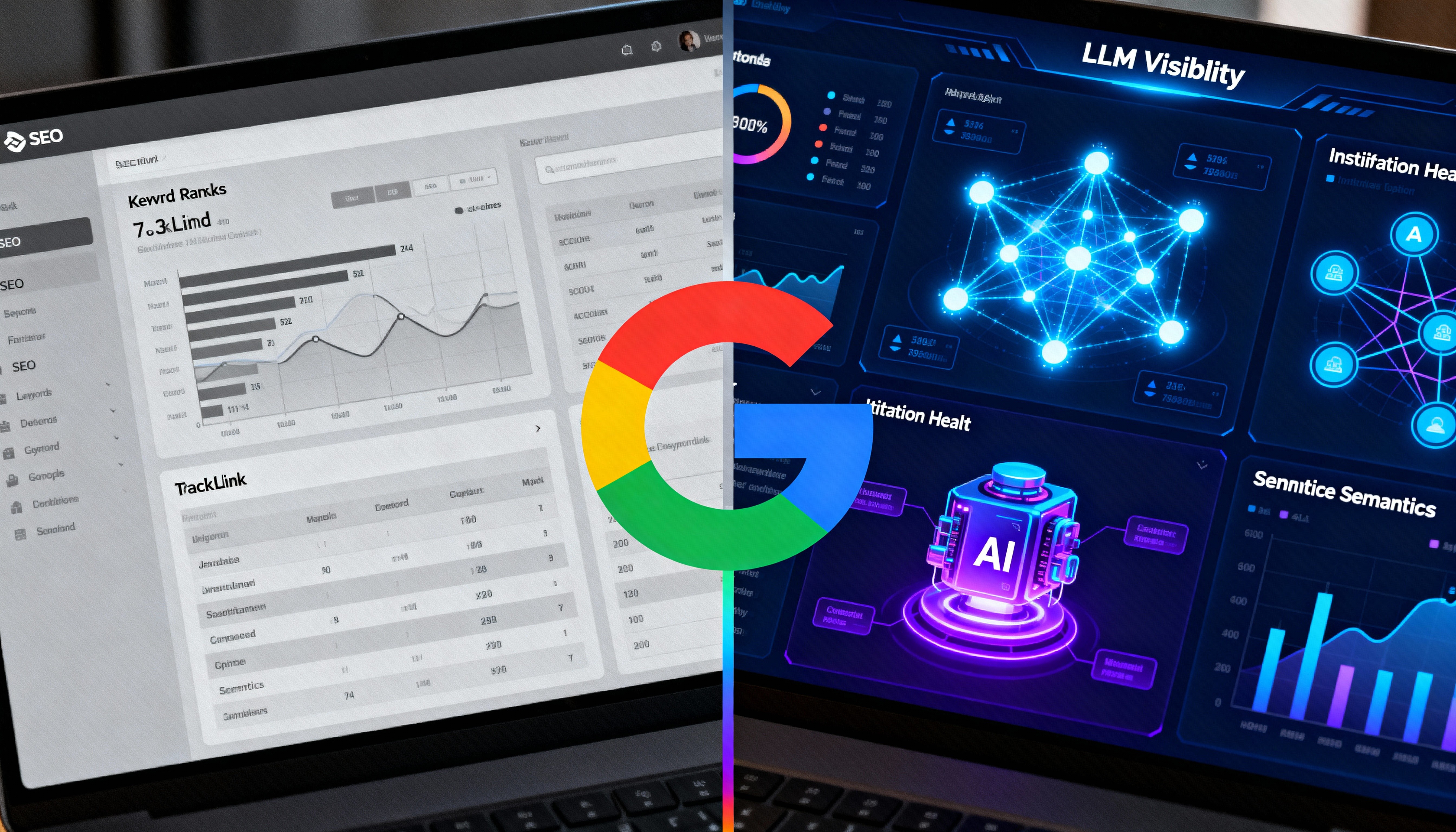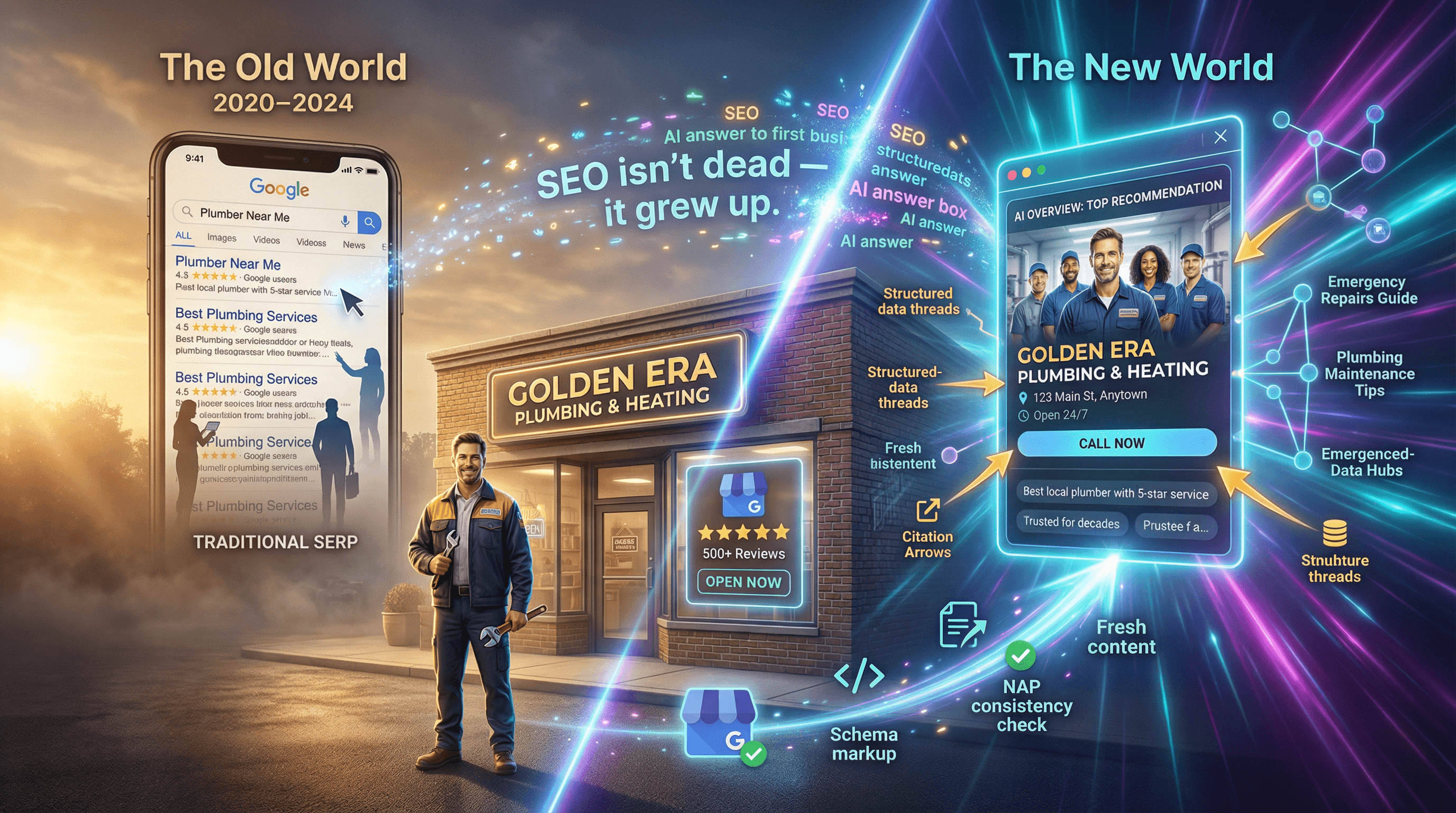Meta Ads
Master Meta's Andromeda update for 2026. Learn how this AI impacts ad strategy, targeting, creative, and optimization for better performance.
So, Meta Andromeda. You've probably heard the name floating around, and maybe you're wondering what it actually means for your ads. It's not just another small update; this is a pretty big shift in how Meta figures out who sees what. Think of it as the new brain behind the operation, making decisions way faster than we ever could. If your campaigns have felt a bit unpredictable lately, or if old tricks aren't working like they used to, Andromeda is likely the reason why. This guide is here to break down what you really need to know, cutting through the tech talk so you can actually use this information to get better results.
Key Takeaways
Meta Andromeda is the new AI system that decides which ads get shown to people. It's faster and smarter, changing how ad delivery works.
Forget trying to outsmart the system with super-specific audiences. Andromeda works best when you go broad and let it find the right people.
Your ad creatives are now the most important thing. Instead of tiny changes, make your ads really different from each other to match different interests.
Use Meta's automated tools, like Advantage+, because they are built to work with Andromeda and help your ads perform better.
Feed the system good data about what actually counts as a success (like sales, not just clicks) so it can learn and get better results for your business.
Understanding Meta Andromeda's Core Functionality
So, what exactly is this Meta Andromeda everyone's talking about? Think of it as the engine room for Meta's ad system, a super-powered upgrade that's changing how ads get picked. It's not just a small tweak; it's a whole new way Meta figures out which ads have a shot at being shown to you.
The Retrieval Engine Explained
Before Andromeda, Meta's system had a tough time sifting through the sheer volume of ads. It was like trying to find a specific book in a library the size of a city, but you only had a few minutes. Andromeda is Meta's answer to that problem. It's a sophisticated system designed to quickly narrow down the millions of ads available to a much smaller group – a shortlist, if you will. This initial filtering step is where Andromeda really shines. It doesn't decide the final ad you see, but it makes sure your ad even gets a chance to compete.
Here's a simplified look at the process:
Massive Ad Pool: Millions of ads are available.
Andromeda's Scan: The system quickly scans this pool based on user signals and ad relevance.
Shortlist Creation: A few thousand potential ads are selected.
Auction & Ranking: Other systems then pick the final ads from this shortlist to show to the user.
If your ad doesn't make that initial shortlist, it's like it never even entered the race. Andromeda's job is to make that shortlist smarter and more relevant.
Beyond Broad Categories: Nuanced Personalization
Remember when ads felt a bit generic? Like, you looked at shoes once and suddenly saw shoe ads everywhere? Andromeda aims to go way beyond that. It's designed to understand user preferences with much more detail. Instead of just knowing you like "shoes," it tries to figure out you like "red flip-flops for beach trips." It uses a lot more signals, looking at subtle patterns in behavior and context, to make a more educated guess about what might actually interest someone at a specific moment.
This shift means Meta is moving from matching broad interests to understanding deeper, more specific user needs and contexts. It's about getting the right message to the right person at the right time, based on a much finer understanding of who they are and what they might be doing.
Addressing the Bottleneck in Ad Delivery
Meta has talked about "retrieval" being a bottleneck. Basically, their old system struggled to keep up with the sheer scale of ads and the complexity of matching them to people. With new tools creating more ad variations than ever, the system needed an upgrade. Andromeda is that upgrade. It's built to handle this massive scale, making the initial ad selection process faster and more intelligent. This means fewer ads get stuck waiting and more have the opportunity to be seen by the right eyes.
System Component | Old System Challenge | Andromeda's Solution |
|---|---|---|
Retrieval Speed | Slow, struggled with volume | Significantly faster, handles scale |
Personalization | Broad categories | Nuanced, context-aware matching |
Ad Volume | Limited processing | Handles massive ad variations |
By fixing this bottleneck, Andromeda is supposed to make the whole ad delivery process smoother and more effective.
The Impact of Meta Andromeda on Advertising Strategy
So, Meta's got this new AI engine, Andromeda, and it's shaking things up. If your campaigns have felt a bit unpredictable lately, or if those old tricks just aren't cutting it anymore, this is probably why. Costs might have gone up, and those little tweaks that used to make a big difference? They're not moving the needle like they used to. It’s because Andromeda is essentially the new brain behind how ads get picked and shown to people.
Shifting Focus from Manual Targeting to Creative Diversification
Before Andromeda, a lot of advertisers thought they could win by being super specific with their targeting. You know, building tons of tiny ad sets, layering interests, and excluding basically half the internet, then just hoping for the best. That approach, however, is starting to hit a ceiling. Andromeda really pushes for broader discovery and, more importantly, for you to get creative with your ads. Your main way to get better results now isn't about manually slicing audiences into tiny pieces; it's about the quality and variety of the ads you put in front of the system. Think about it – if you only give the system one type of ad, it can only try that one angle. But if you offer a bunch of different ads that speak to different problems or different kinds of people, the system has a much better chance of finding someone who will actually connect with it.
Why Old Playbooks Are No Longer Effective
Remember when you could just tweak a few keywords or narrow down an audience by a couple of interests and see immediate results? Those days are pretty much over. Andromeda is designed to handle a massive scale of ad variations, especially with all the new AI tools popping up. It can process way more ads than the older systems could. This means that the old way of finding a single
Navigating Campaign Construction with Meta Andromeda

Alright, so Meta's Andromeda update is shaking things up, and how you build your campaigns needs a bit of a rethink. Forget those old, super-tight targeting rules you used to live by. Andromeda is all about letting the AI do more of the heavy lifting, which means your job shifts.
The New Rules of Audience Targeting
This is a big one. Instead of trying to guess every single person who might want your product and building a million tiny audience segments, Andromeda wants you to go broader. Think of it like this: you're not trying to hand-pick every single person for a party anymore. You're just opening the doors wide and letting the smart invitation system (Andromeda) figure out who's most likely to show up and have a good time. This means:
Keep your ad sets broad. Don't get bogged down in endless interest stacking or demographic exclusions. Give Andromeda enough room to work its magic.
Focus on smart exclusions. While you're broadening your reach, still exclude obvious non-fits. Think existing customers if you're running a new customer acquisition campaign, or people in countries you don't ship to.
Let the AI find the pockets. Andromeda is designed to identify nuanced audience segments based on behavior and context that you might never have thought of. Your broad targeting gives it the data to do this.
Simplifying Campaign Structure for AI
Because Andromeda is handling a lot of the audience matching, your campaign structure can actually get simpler. You don't need a separate campaign for every single minor variation of a target audience anymore. The goal is to create fewer, more robust campaigns that allow Andromeda to optimize.
One campaign per objective. If you want sales, have a sales campaign. If you want leads, have a leads campaign. Keep it clean.
Minimize ad sets. You'll likely need far fewer ad sets than you used to. The differentiation will happen more at the ad level.
Focus on the ad level for variation. This is where your creative diversification efforts will really pay off. Different ads will speak to different motivations, and Andromeda will match them.
Leveraging Advantage+ Suite for Andromeda Integration
Meta's Advantage+ tools are practically built to work hand-in-hand with Andromeda. They're designed to embrace automation and AI-driven optimization. If you're not already using them, now's the time to start.
Advantage+ Shopping Campaigns: These are great for e-commerce and automate a lot of the audience, placement, and creative testing. They feed Andromeda the signals it needs.
Advantage+ Creative: This feature automatically tests different combinations of your ad assets (images, headlines, descriptions) to find what works best for different people.
Advantage+ Placements: Let the system decide where your ads show up. Andromeda works best when it has flexibility across different placements.
The shift with Andromeda means your campaign setup becomes less about manual control and more about providing the AI with the right environment to perform. Think of yourself as a conductor, not a musician playing every instrument. You set the stage, provide the score (your diverse creatives and broad audiences), and let the orchestra (Andromeda) play the music.
Ultimately, your time is better spent creating a wider range of compelling ad variations than trying to micromanage audience settings.
Creative Diversification: The New Differentiator
Okay, so Meta's Andromeda algorithm is here, and it's changing things up. Forget just tweaking your ad copy a little bit. The real game-changer now is how different your ads are from each other. Think of it this way: Andromeda is like a super-smart matchmaker, and the more unique
Optimizing Performance in the Andromeda Era

So, Andromeda is here, and it's changing how Meta figures out who sees what ad. It's all about getting more specific, which sounds great, but it means we need to adjust how we think about campaign performance. It's not just about hitting a number anymore; it's about making sure the system has what it needs to actually work well.
Measuring Business Growth: ROAS and Beyond
While Return on Ad Spend (ROAS) is still a big deal, Andromeda pushes us to look at the bigger picture. It's about sustainable growth, not just quick wins. Think about metrics that show real business impact, like Customer Lifetime Value (CLV) or overall market share. Andromeda's ability to find niche audiences means we might see lower ROAS on individual campaigns but higher overall profitability because we're reaching the right people who are more likely to stick around.
Focus on Profitability: Ensure your campaigns are driving profitable sales, not just revenue.
Track Customer Lifetime Value: Understand the long-term worth of customers acquired through Andromeda.
Monitor Market Share: See if your campaigns are helping you gain ground against competitors.
Andromeda is designed to find the most relevant audience for your ads, which can lead to more efficient spending. However, this efficiency needs to be measured against broader business objectives to truly gauge success.
Protecting the AI's Learning Phase
This is a big one. Andromeda, like any AI, needs time and good data to learn. Messing with campaigns too much during this initial phase can really mess things up. It's like trying to teach a kid algebra before they've learned basic addition – it just won't stick.
Allow Sufficient Budget: Give campaigns enough budget to gather meaningful data.
Avoid Frequent Changes: Stick to a plan for at least a week before making significant adjustments.
Maintain Stable Goals: Don't switch campaign objectives mid-flight unless absolutely necessary.
Blending Human Insight with Machine Learning
Andromeda is smart, but it doesn't know everything. Human oversight is still super important. We bring the strategy, the understanding of our brand, and the creative ideas. The AI handles the massive data processing and delivery optimization. It’s a partnership. We need to feed it the right signals and interpret its results with our own business knowledge. This is where cross-platform AI budgeting becomes a game-changer, allowing for a more holistic view of performance across all your digital ad investments.
Creative Strategy: Humans develop diverse and compelling ad creatives.
Audience Understanding: Use your knowledge of customer personas to guide targeting.
Performance Analysis: Interpret AI-driven data through the lens of business goals.
Feeding Andromeda High-Quality Data Signals
Okay, so we've talked a lot about how Andromeda works and how it's changing the game for advertisers. But all that fancy AI needs good fuel to run on, right? That's where feeding it high-quality data signals comes in. Think of it like this: if you give a chef amazing ingredients, they can make a fantastic meal. If you give them junk, well, you get the idea.
The Importance of Clean Conversion Data
This is probably the most important part. Every single data point you send helps Andromeda figure out what a good conversion actually looks like versus a not-so-good one. For online stores, this means sending over the actual purchase value every time someone buys something. Don't just send a generic 'purchase' event; send the dollar amount. For businesses that generate leads, it's about sending a custom event, maybe something like QualifiedLead, after your sales team has actually vetted that person. When the AI knows what "high quality" means, it gets way better at finding more people who fit that profile. It’s not just about getting clicks; it’s about getting the right kind of engagement that actually moves the needle for your business. This is how you get better results from Meta's machine learning.
Defining Success for AI Optimization
What does success even mean for Andromeda? If your main goal is sales, you need to tell the AI to optimize for Purchase, not just ViewContent or LinkClick. Andromeda learns by looking at the patterns of people who complete the objective you set. If you choose weaker signals, you're basically training it to find cheap traffic, not actual buyers. Always pick the conversion event that truly represents value to your business. Also, don't forget about the Conversions API (CAPI). Relying only on the pixel isn't enough anymore. Setting up CAPI lets your website or CRM send conversion data straight to Meta's servers. This server-to-server connection gives Andromeda cleaner, more accurate information, even when browser tracking gets tricky. It's a really solid way to make optimization better and cut down on wasted ad money.
Actionable Data for E-commerce and Lead Generation
So, how do you actually do this? Here’s a quick rundown:
For E-commerce: Always pass the actual purchase value and currency. If you can, send downstream events like
Add to CartorInitiate Checkouttoo. This gives Andromeda a fuller picture of the customer journey.For Lead Generation: Optimize for a server-side event that signifies real value, like
QualifiedLeadorMQL. If you're sending lead data, include details about lead quality if possible. This helps Andromeda find prospects who are more likely to convert into paying customers.General Best Practice: Use the Conversions API alongside your pixel. Make sure your data is deduplicated and that you're sending consistent, accurate information. The cleaner the signal, the faster Andromeda learns who your best customers are.
The core idea here is that you don't win by trying to outsmart the machine. You win by feeding it the best possible information so it can do its job effectively. Think of it as a partnership where you provide the intelligence, and the AI does the heavy lifting of finding and reaching the right audience.
Remember, Andromeda needs stability to work its magic. Making huge changes all the time can reset its learning process. Try to make smaller adjustments, maybe no more than 20% at a time, and give the campaign a few days to adjust before you tweak it again. This stability helps the AI build a more predictable growth engine for your business.
Wrapping Up: Your Andromeda Game Plan
So, we've gone through what Meta's Andromeda is all about and why it's shaking things up for advertisers. It's clear that the old ways of just tweaking audiences or hoping a small creative change would do the trick aren't really the move anymore. Andromeda is basically Meta's new brain for figuring out who sees your ads, and it's way more about letting the system learn and discover on its own. This means we need to focus on giving it good, diverse creative and clean data, rather than trying to micromanage every little setting. Think of it as working with the AI, not against it. If you start feeding it what it needs – like a bunch of different ad ideas and clear signals about what a good customer looks like – you'll probably see your campaigns get more stable and maybe even cheaper to run. It’s a big shift, for sure, but getting on board now will make a difference down the road.
Frequently Asked Questions
What is Meta Andromeda and how does it change ads?
Think of Meta Andromeda as a super-smart helper for Meta's ads. It's like a librarian who knows exactly what book you might want, even if you only give a small hint. Before, ads were shown based on broad categories. Now, Andromeda helps show ads that are much more specific to what you like and what you're doing right now. This means ads can feel more like they were made just for you. It's a big change that makes ads work differently on Facebook and Instagram.
Why do old ad strategies not work anymore?
The old way of running ads was like trying to guess which specific people would like your ad by picking very small groups. But Andromeda is so good at finding the right people that these small groups don't work as well anymore. It's like trying to tell a chef exactly which ingredients to use when they already know how to make the most amazing meal. Now, you need to give the system lots of different ad pictures and videos so it can find the perfect match for different people.
How should I change my ad campaigns for Andromeda?
Instead of trying to pick very specific types of people for your ads, it's better to let Andromeda do that work. You should make your ad groups bigger and let the AI figure out who to show the ads to. Also, instead of making tons of tiny changes to one ad, create many different ads that are really different from each other. This gives Andromeda more options to find the best people for each ad.
What does 'creative diversification' mean for my ads?
Creative diversification means making ads that are truly different from each other, not just changing a word or a color. Imagine you're selling shoes. Instead of just showing the same shoe in a slightly different picture, you could show ads about how comfortable they are, how stylish they look for a party, or how good they are for running. These are different reasons someone might buy shoes. Andromeda can then show the right ad to the right person based on what they care about.
How can I make sure my ads perform well with Andromeda?
To get the best results, focus on what really matters to your business, like how much money you make back (ROAS), not just how many people click. Also, try not to change your ads or budgets too often, especially when they are just starting to work well. This helps Andromeda learn better. It's also smart to combine what you know about your customers with what the AI figures out.
Why is good data important for Andromeda?
Andromeda learns from the information you give it. If you tell it when someone actually buys something or becomes a good lead, it learns what a successful customer looks like. This helps it find more people who are likely to do the same thing. If the data is messy or wrong, Andromeda can't learn properly, and your ads won't work as well. So, making sure your sales and lead information is accurate is super important.
























































































